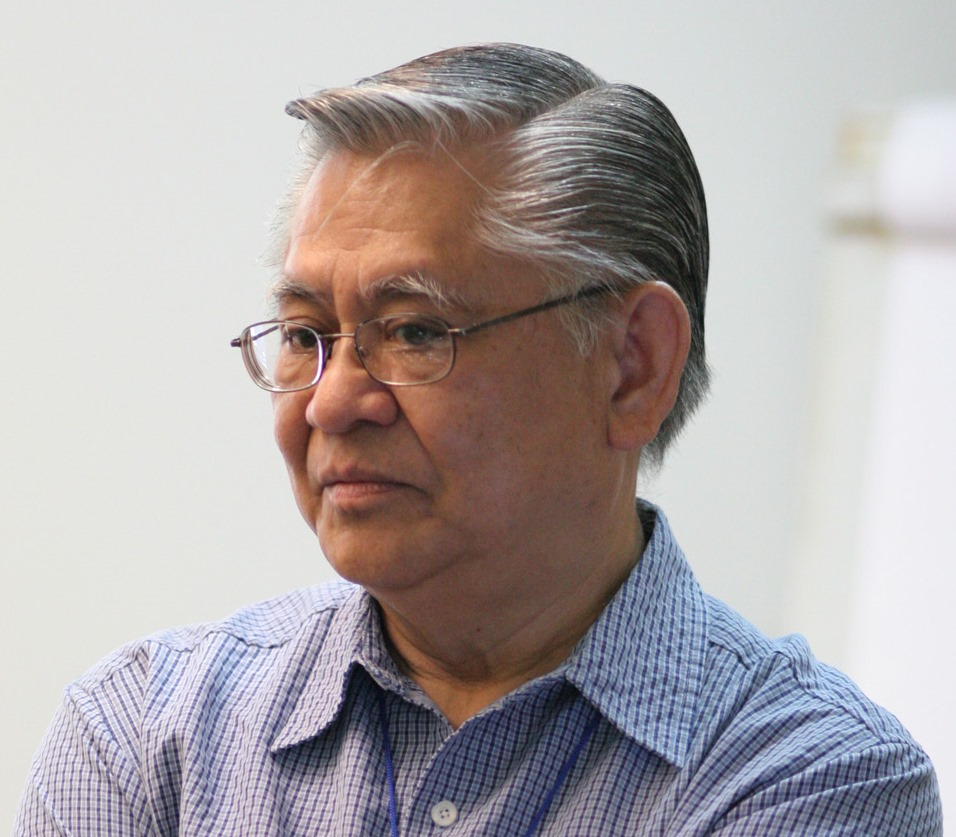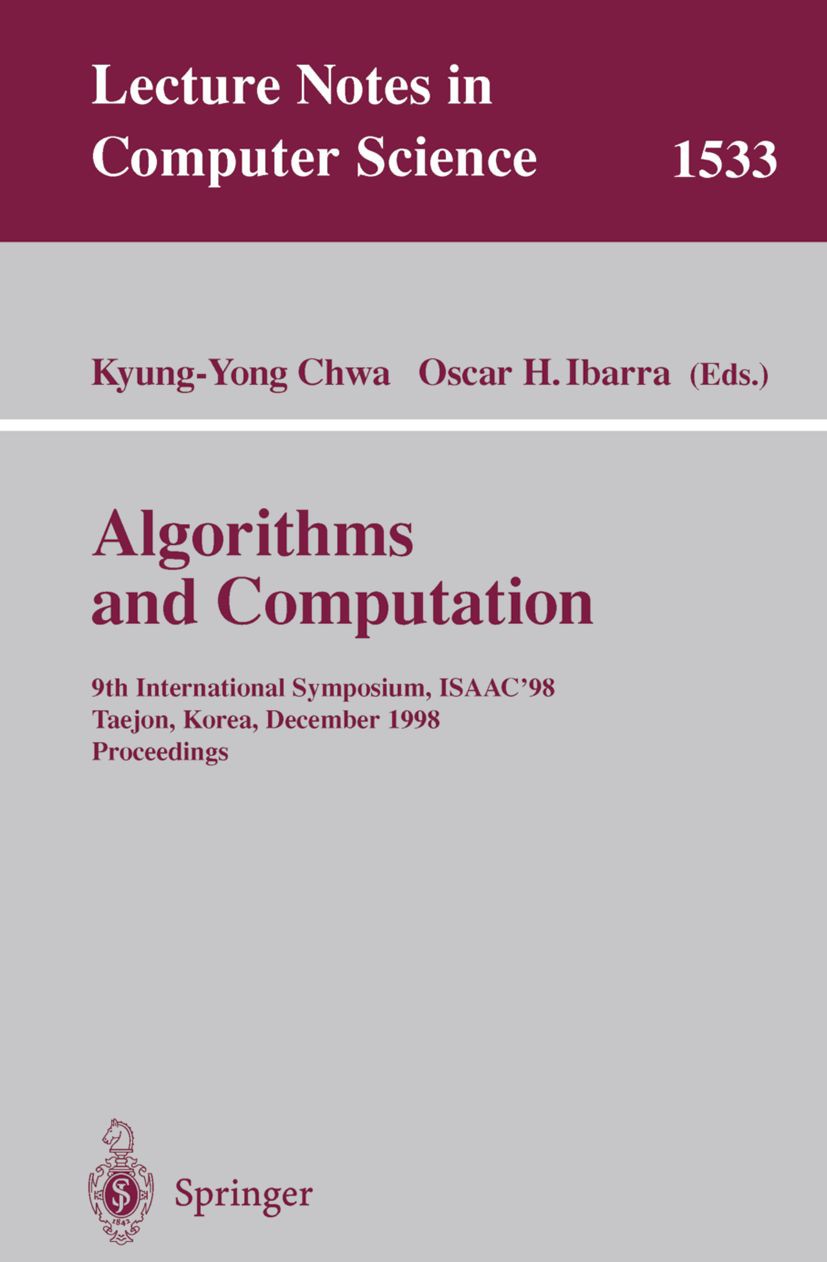
Figure 1: Oscar H. Ibarra
Source: CIAA 2016, Yonsei University (2016)
Downloadable teaching resource
Overview
Oscar H. Ibarra is a distinguished Filipino American computer scientist famed for his work in automata theory, formal languages, and computational complexity. He is Professor Emeritus at the University of California, Santa Barbara, and a Fellow of the Association for Computing Machinery (ACM), the Institute of Electrical and Electronics Engineers (IEEE), and the American Association for the Advancement of Science (AAAS), having received accolades such as the Harry H. Goode Memorial Award and the Blaise Pascal Medal (University of California, Santa Barbara, no date).
Background
Professor Oscar H. Ibarra was born on 29 September 1941 in Negros Occidental, Philippines (Wikipedia, 2024). He began his formal education in the Philippines before relocating to the United States to pursue postgraduate studies in Electrical Engineering at UC Berkeley, earning his MSc in 1965 and PhD in 1967. Following positions at Berkeley and the University of Minnesota, he joined the University of California, Santa Barbara, where he served as Department Chair, foundational to his distinguished career (University of California, Santa Barbara, no date).
Contributions
Professor Oscar H. Ibarra has made foundational contributions to automata theory, formal languages, and computational complexity. A central focus of his research has been on the computational power of machine models—especially counter machines, pushdown automata, and Turing machines—under strict resource constraints (Ibarra, 1978; Ibarra, 1972).

Figure 2: Lecture Notes in Computer Science
Chwa and Ibarra (1998)
One of his most influential studies explored reversal‑bounded multicounter machines, demonstrating how limiting the number of reversals in a counter direction alters the class of languages the machine can recognise. This provided a powerful framework for classifying decision problems within formal language theory (Ibarra, 1978). Additionally, his work on two‑way multihead automata revealed essential structural differences between deterministic and nondeterministic models and clarified their relationships to logarithmic space complexity (Ibarra, 1973).
Through this expansive body of theoretical and applied work, Ibarra has significantly shaped complexity theory and influenced its implementation in computer architecture, embedded systems, and automated verification.
Feature: Reversal-Bounded Multicounter Machines
In 1978, Professor Ibarra introduced reversal-bounded multicounter machines (RBCMs), a seminal concept in theoretical computer science. These are finite automata extended with counters, where the number of times each counter can reverse its mode (from incrementing to decrementing, or vice versa) is limited. While seemingly a small restriction, this constraint fundamentally altered the expressive power of these machines (Ibarra, 1978).
RBCMs enable researchers to precisely analyse decision problems in a new complex regime—between regular languages and the full power of Turing machines. This model offered a tractable framework for studying verification, space complexity, and semi-decidability across different classes of formal languages.
Ibarra’s formal proofs showed that reversal bounds introduce decidability in problems that are otherwise undecidable in general counter machines. These insights laid the foundation for an entire body of work focused on constrained computational models that could be implemented efficiently and verified systematically.
Ibarra’s framework later inspired refinements of multicounter and pushdown automata under resource constraints—informing subsequent research in embedded systems, formal language processing, and automated program verification (Baumann et al., 2023). Today, RBCMs remain a cornerstone in automata theory, offering a lens through which computational limits can be studied with both mathematical rigour and practical foresight.
See also
An academic profile outlining Professor Ibarra’s membership in the prestigious Academia Europaea and highlighting his contributions to theoretical computer science.
A research overview featuring Ibarra’s global academic ranking, citation metrics, and influence in automata theory, formal languages, and complexity.
References and further reading
Academia Europaea (no date) Oscar H. Ibarra – Member Profile. Academia Europaea. Available at: https://www.ae-info.org/ae/Member/Ibarra_Oscar (Accessed: 12 July 2025)
Baumann, P., D'Alessandro, F., Ganardi, M., Ibarra, O., McQuillan, I., Schütze, L. and Zetzsche, G. (2023) ‘Unboundedness problems for machines with reversal bounded counters’, arXiv preprint. Available at: https://arxiv.org/pdf/2301.10198 (Accessed: 12 July 2025)
Chwa, K. Y. and Ibarra, O. H. (1998) Algorithms and Computation: 9th International Symposium, ISAAC’98 Taejon, Korea, December 14-16, 1998 Proceedings. 1st edn. Berlin, Heidelberg: Springer Berlin / Heidelberg. Available at: https://doi.org/10.1007/3-540-49381-6 (Accessed: 14 August 2025).
CIAA 2016, Yonsei University (2016) ibarra-photo.jpg. Available at: https://toc.yonsei.ac.kr/ciaa2016/images/ibarra-photo.jpg (Accessed: 10 August 2025)
IEEE Computer Society (no date) Harry H. Goode Memorial Award. Available at: https://www.computer.org/volunteering/awards/goode (Accessed: 12 July 2025)
Ibarra, O. H. (1972) ‘A note concerning nondeterministic tape complexities’, Journal of the ACM, 19(4), pp. 608–612. Available at: https://dl.acm.org/doi/pdf/10.1145/321724.321727 (Accessed: 12 July 2025)
Ibarra, O. H. (1973) ‘On two-way multihead automata’, Journal of Computer and System Sciences, 7(1), pp. 28-36. Available at: https://dl.acm.org/doi/pdf/10.1145/321724.321727 (Accessed: 12 July 2025)
Ibarra, O. H. (1978) ‘Reversal-bounded multicounter machines and their decision problems’, Journal of the ACM, 25(1), pp. 116–133. Available at: https://doi.org/10.1016/S0022-0000(73)80048-0 (Accessed: 18 August 2025)
Palis, M. (2010) ‘Oscar H. Ibarra: Computer scientist par excellence’, Philippine Science Letters, 3(1), pp. 1–6. Available at: https://scienggj.org/2010/20101.pdf (Accessed: 12 July 2025)
Research.com (no date) Oscar H. Ibarra – Research Profile Available at: https://research.com/u/oscar-h-ibarra (Accessed: 12 July 2025)
University of California, Santa Barbara (no date) Oscar H. Ibarra – Faculty Profile Available at: https://cs.ucsb.edu/people/faculty/oscar-h-ibarra (Accessed: 8 July 2025)
Wikipedia (2024) Oscar H. Ibarra Available at: https://en.wikipedia.org/wiki/Oscar_H._Ibarra (Accessed: 12 July 2025)
